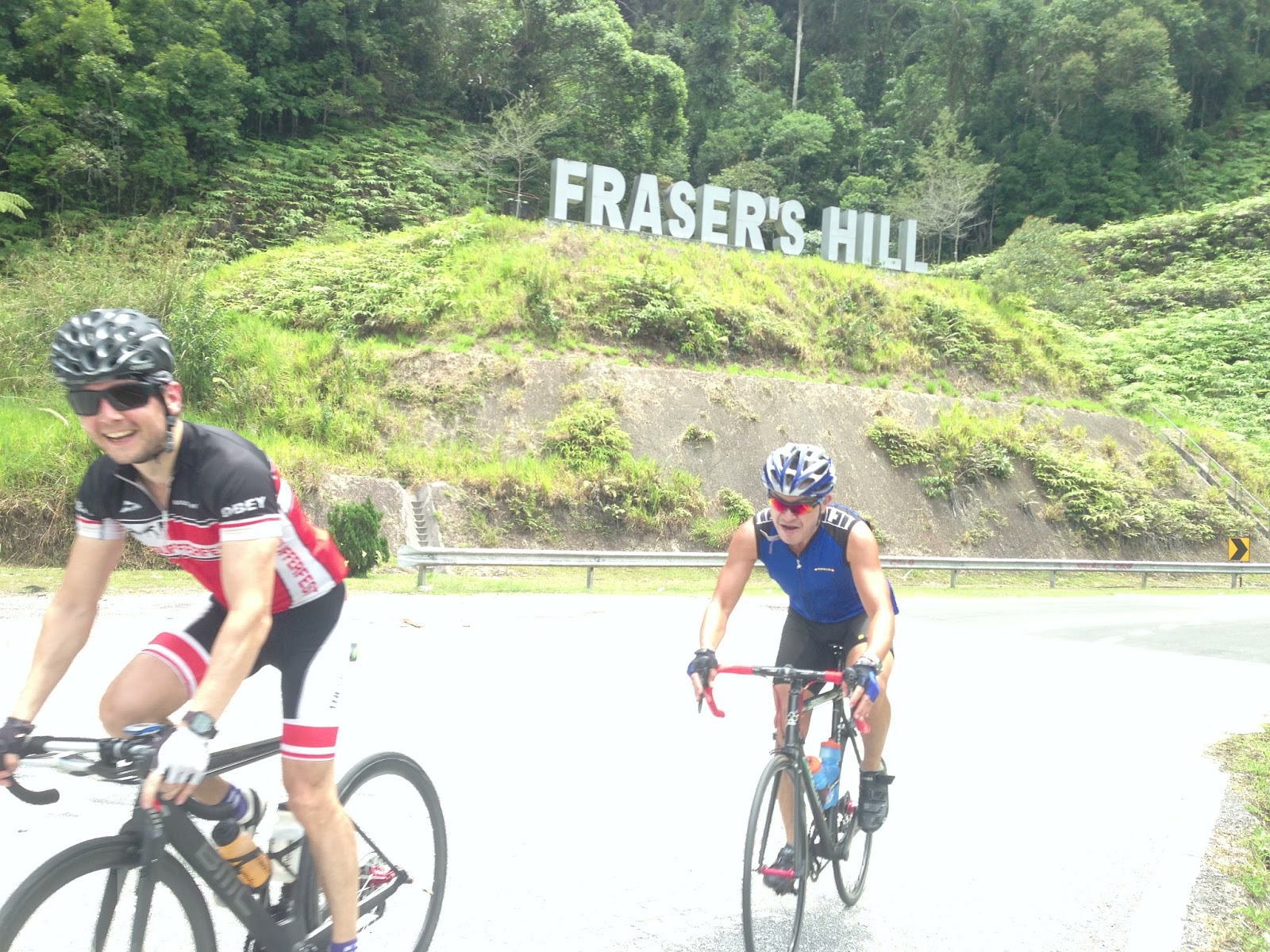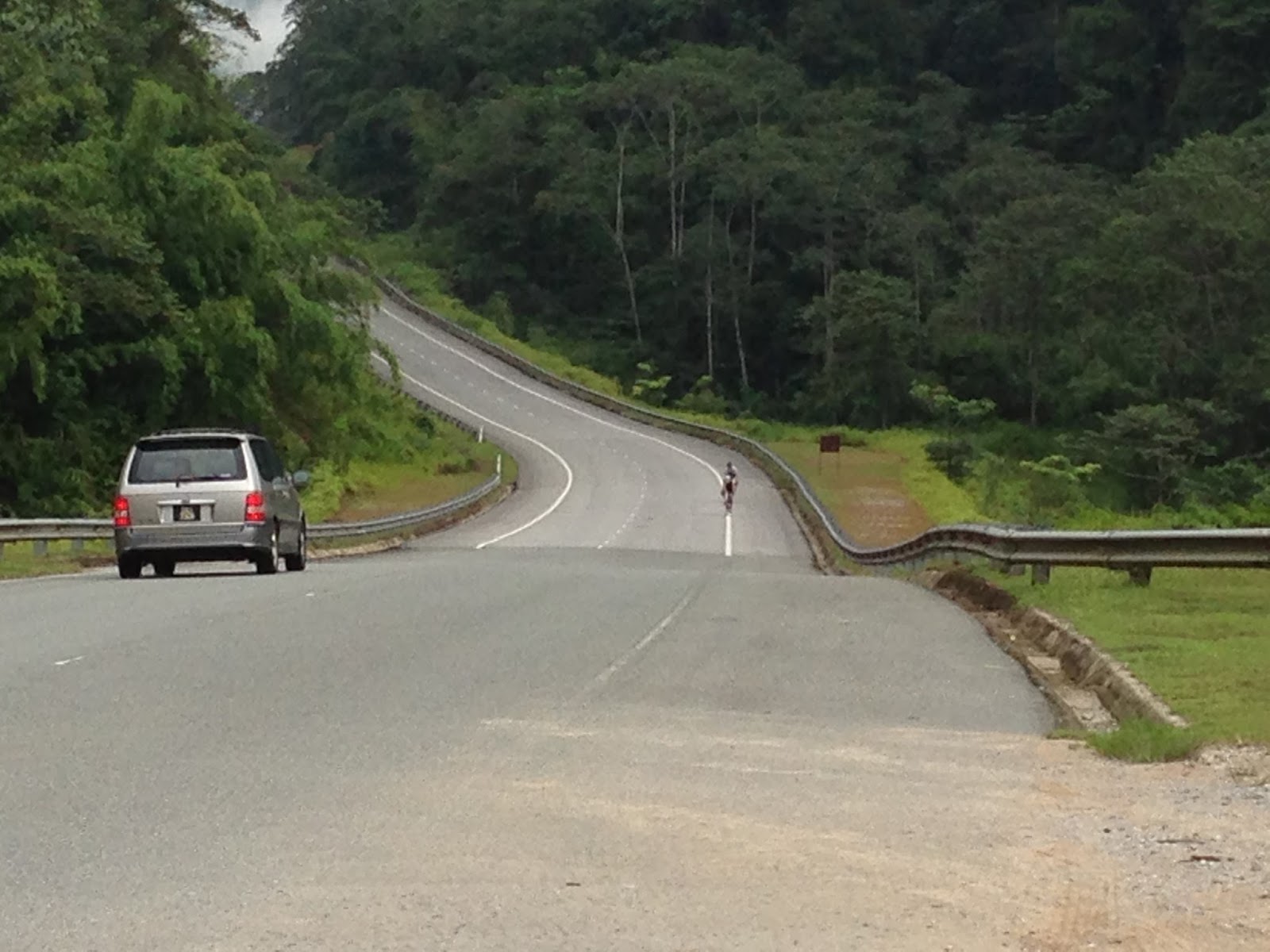There's something fundamentally disturbing about the apparent inability of some amateur cyclists and fans of the sport to embrace the new wave in cycling. It may be hip in the coffee shops and online forums to support the attitude: "clean sport? pull the other one!", but in reality you are all just afraid of making a stand for fear of being shot down later. Open your eyes and you might find that you can untie yourselves from the mast and revel in cycling's new dawn!
I won't argue that a bit of healthy scepticism isn't natural given the severe thrashing our faith has taken in the recent past. We were convinced by a cancer survivor who looked death in the eye and then bounced back to win the world's greatest bike race 7 times. It was such a big story that it changed the world of cycling. It was Lance's story that fueled the dreams and passions of a generation of cycling fans. Tragic indeed when you consider that almost every current pro cyclist was inspired by his story, and many of them may be riding today as a direct result of that inspiration.
I was definitely a believer. It's a great story. But whatever our dismay at being duped, it's repulsive to witness Lancemania turn on it's heels into a hate fest. I mean, we supported and urged the media, the teams, the athletes, the UCI, to sell us the super-hero story over and over again for years, even to a point that it no longer sounded remotely plausible. We all played our part.
Many tried to warn us, but we dismissed them as heretics. It's too easy to blame him for bursting our bubble, but our delusional addiction to the Hollywood ending is a major contributor. And should we single him out for playing by the sport's rules so effectively, just because we knew nothing about the real nature of the game? Like a bunch of kids who find out that the actor who played batman is an alcoholic transvestite. He lied. They all lied.
The rot set in long ago. We can look back at 1967 and the death on Mont Ventoux of Tom Simpson and see in retrospect that this could have been one of the more timely moments to turn the tide if our governing body hadn't been so spineless. Drugs insinuated their way into the sport well before Simpson's day. Hardly surprising that those involved in such a tough sport would look for ways of making it slightly less painful. Yet the tolerance of the slight bending of the rules back then was the slippery slope to the teams with their own pharmacists of the 1990s.
My reaction to the revelations of USADA's report and the subsequent Armstrong admission in 2012 was to read absolutely everything I could get my hands on about the subject. There are some great books out there that reveal the truths of life in the peloton in the 1990s. Books by Paul Kimmage, David Millar, Tyler Hamilton, David Walsh, and others brave enough to break the code of silence, who told it like it was. That was the only way I could get over the demolition of my own personal history as a fan of the sport. The most real and enlightening book is still Willy Voet's Breaking The Chain.
And (along with a slightly irreverend and outspokenly clean London boy winning the Tour) it was a great help. The results of this study pinned the fault squarely on the shoulders of the UCI for failing to protect professional cyclists from the pitfalls of competing in such a brutal sport for financial gain. For allowing drug use to be the way team managers could ensure results for the sponsors by making sure riders "prepare" themselves chemically to win. Many noble and principled individuals watched their self-respect disintegrate as they accepted what they must do to have any hope of renewing contracts and keep their families fed for another season.
Bradley Wiggins has spoken of his own evolution within the sport and the lucky break of making a painless transition from the wholesome UK Olympic track program into a French team in 2002 that was of the new clean era. We can see that he was already part of a new generation, even though many less fortunate were still being subjected to the pressures of "preparation". I believe him, and I believe in him: "I'd rather stack shelves in Tesco's and be a good father to my children than live a lie and one day have to explain to them why we've lost everything and have to sell the house".
There are some awesome people cleaning the sport up from the inside out. It may not come from the top yet, but nobody's waiting around for the UCI to take charge. Here are a few simple and obvious truths which satisfy me:
1). I believe in the integrity of certain individuals. These people are particularly vociferous and aggressive in the insistence on a clean sport. Most obviously Sky team's amazing guiding light David Brailsford, but also riders Bradley Wiggins, Chris Froome, Richie Porte - basically the whole Sky team. Also Garmin Sharp's outspoken director Jonathan Vaughters and riders Dan Martin, David Millar and co. These people are just the most visible tip of the iceberg. There are many more.
2). If these guys were just in the pack struggling, it would be a moot point that they were clean. But they're not. They are winning - even dominating sometimes. The message is clear: There's a clean way to be the best. Nobody in the peloton has missed this message. Not the riders, nor the teams or sponsors. This is the new order.
Froome: “For me it is a bit of a personal mission to show that the sport has changed. I certainly know that the results I get are not going to be stripped 10, 20 years down the line. That’s not going to happen."
There may still be bad apples in the cart - players who are so used to the old game that they feel it's their right to use whatever means necessary to achieve the result. But from what I gather through what I've read and seen with my own eyes, is that I am watching even riders who were part of the old order now competing clean, not because they have to, but because they can. Because they have faith they are competing against clean athletes, they no longer need to take drugs to be competitive.
Whether this has a long-term effect is up to the UCI or their replacement. They can't rely on the idealism of the new generation being enough to ensure a trouble-free future in the sport. The biological passport is a great step forward as it monitors the health and fitness of riders in great detail, but the governing body has to do much more than just putting testing measures in place. The hardest thing will surely be to oust the considerable private enterprise that goes on behind closed doors at the top end. To move forward though, it has to set-up and live by a new set of democratic principles that can never allow this kind of self-interest and corruption to creep back in.
But back to the present. I, for one, am having immense fun watching my new cycling heroes in action. There are some amazing new faces coming up in the sport. They all have bad leg days, they lose form, gain form, and are transparently human, but on a good day they can be awesome. There are also some individuals so talented that many would like to believe they're on drugs. But I'm sure they can't be - it would take too much effort to arrange such a deception now, and I know they'd much rather just ride their bikes.
Some related links:
Jonathan Vaughters compares the contenders for UCI leadership
Dan Martin interview
David Walsh on Chris Froome
David Millar on Sky and Froome









































